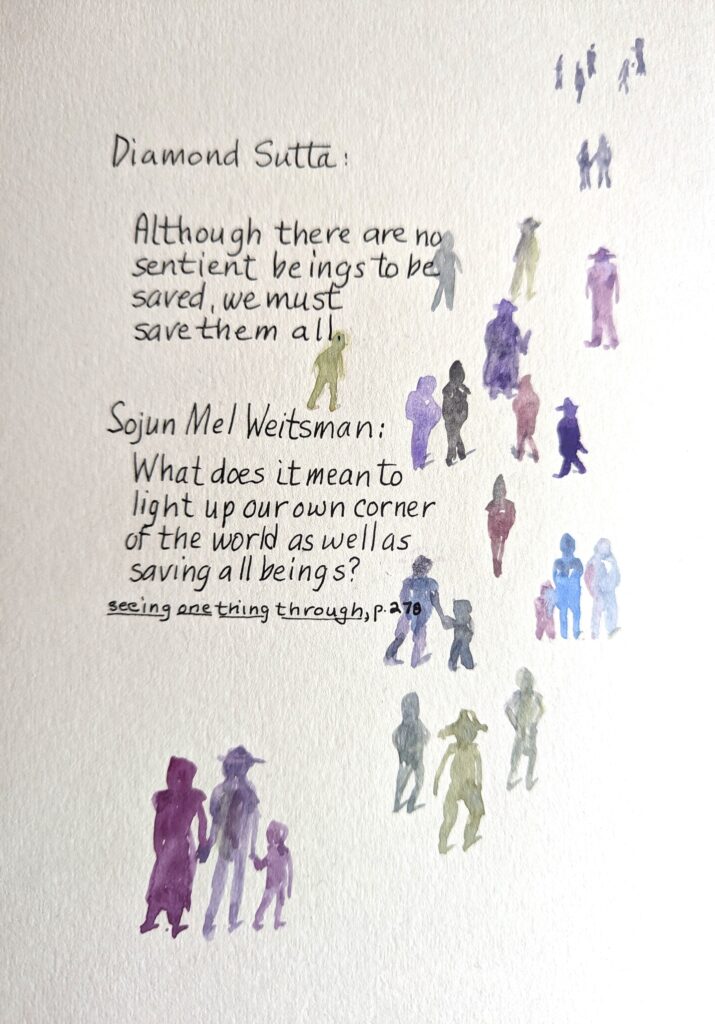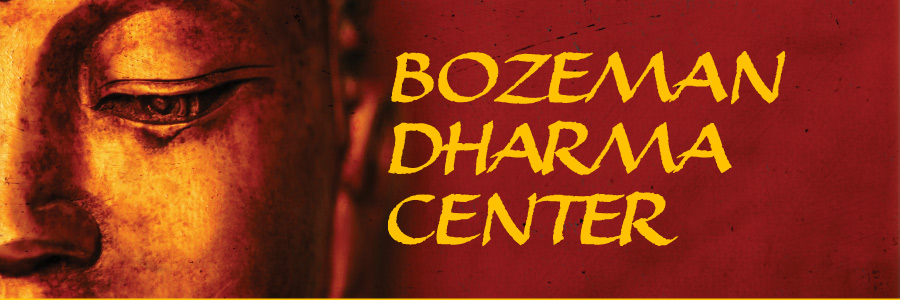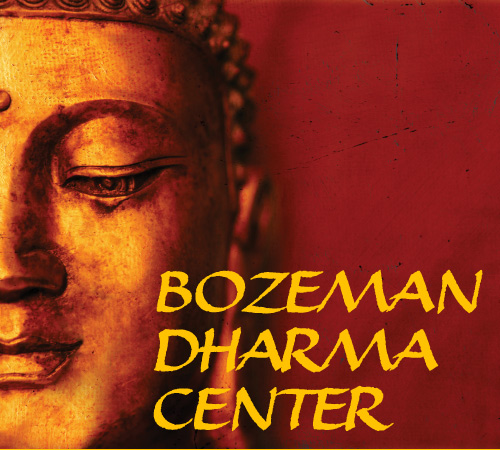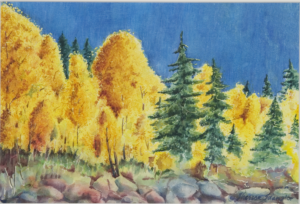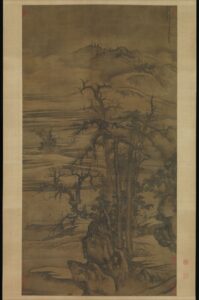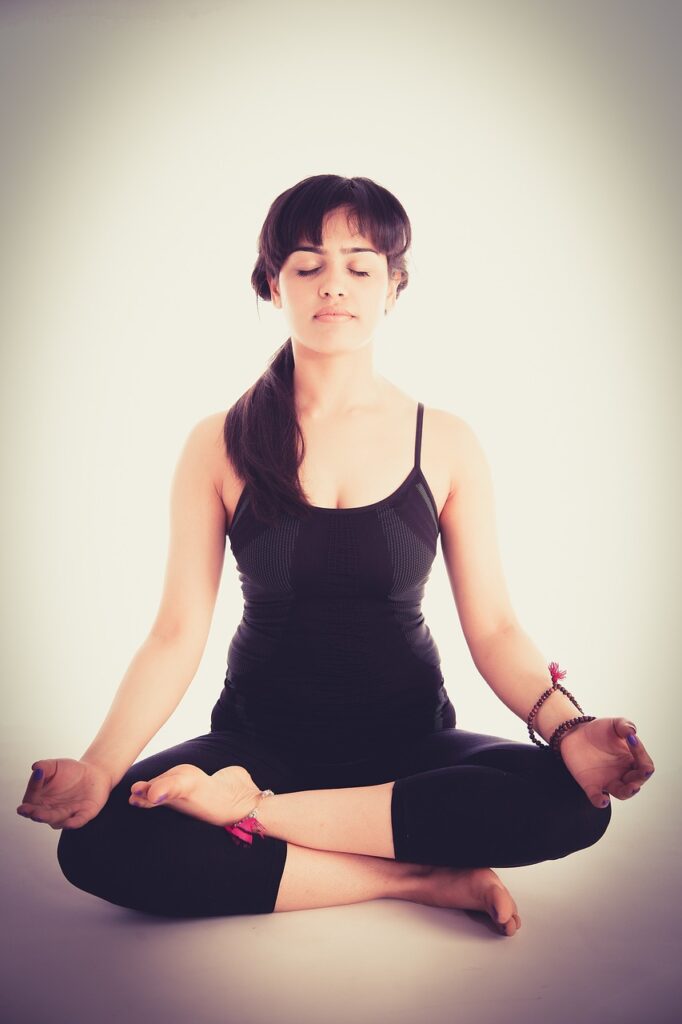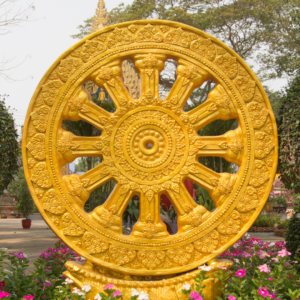September’s Mindful Creativity class is to create your own miniature book of Dharma Truths that you’d like to remember! In interest of time, the miniature accordion books will be premade (you will get instructions on how to make the book). Instructor will provide lettering options, and page design inspirations. All you have to do is transcribe your favorite quote, image or reminder on the pages, and illuiminate the page. Materials will be provided for you to share, but amounts are limited, So, if you have some favorite markers, pens, stamps, etc. bring them along.
Bring a selection of words, quotes, phrases, haiku, short poems that inspire you, and support your practice. Have 5 or 6 or more to choose from. These will be used for your book and to support others.
Some optional things to bring:
- your favorite writing tools, pens, markers, pencils. There will be plenty available, but if you have a preference bring yours.
- if you have a design, illustration, border, small rubber stamp, etc.that you’d like to include in your book, bring that too.
Please pre-register for Mindful Creativity: Dharma Truths so we can ensure that we have enough space and supplies!
